Abstract
An increasingly diverse population and ongoing health disparities have brought national attention to cultural competence training in medical schools. However, few data exist on medical students' knowledge in cultural competence. The purpose of this study is to assess medical students' knowledge in cultural competence to identify training areas for curriculum development. All third-year medical students at a single institution during the period of November 2001 to February 2004 completed a questionnaire to assess their knowledge of cultural competence during their medicine clerkship. The 40-item questionnaire measured several domains of cultural competence: health disparities, stereotyping, exploring culture, perceptions of health and illness, and communication/language. The mean knowledge score was 55%, and no student scored >80%. Race and prior cultural training were not predictors of overall performance.
Full text
PDF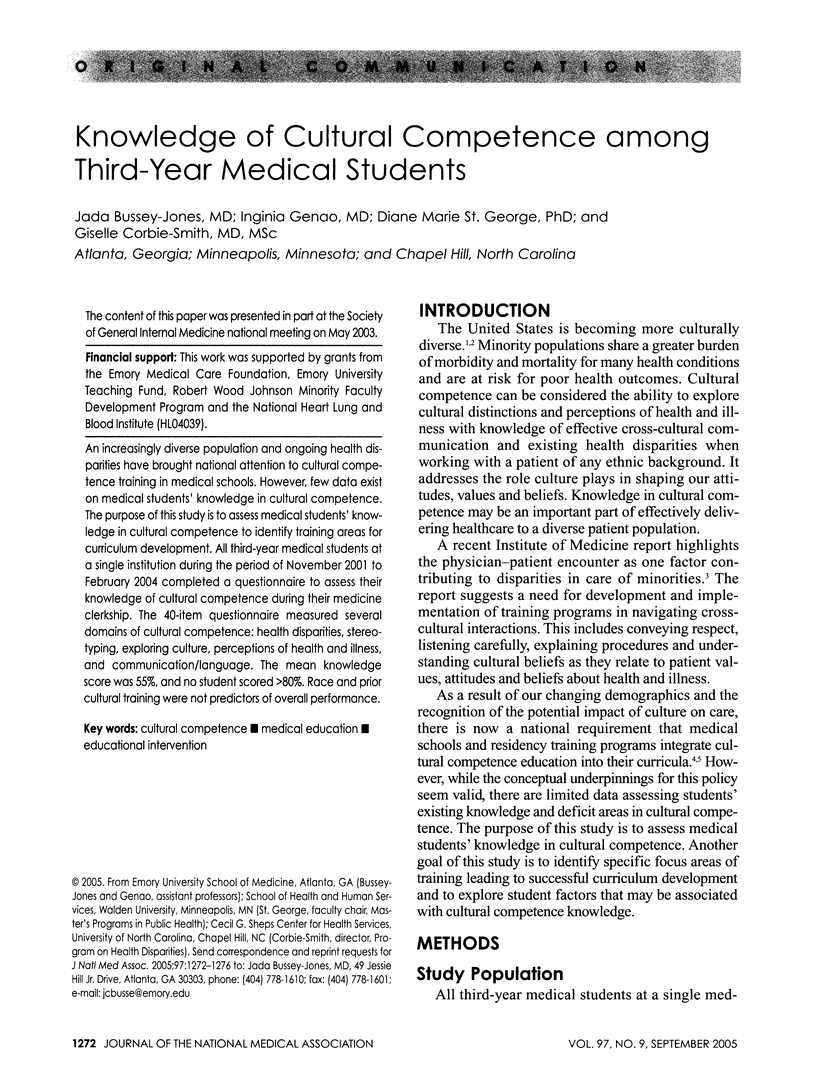
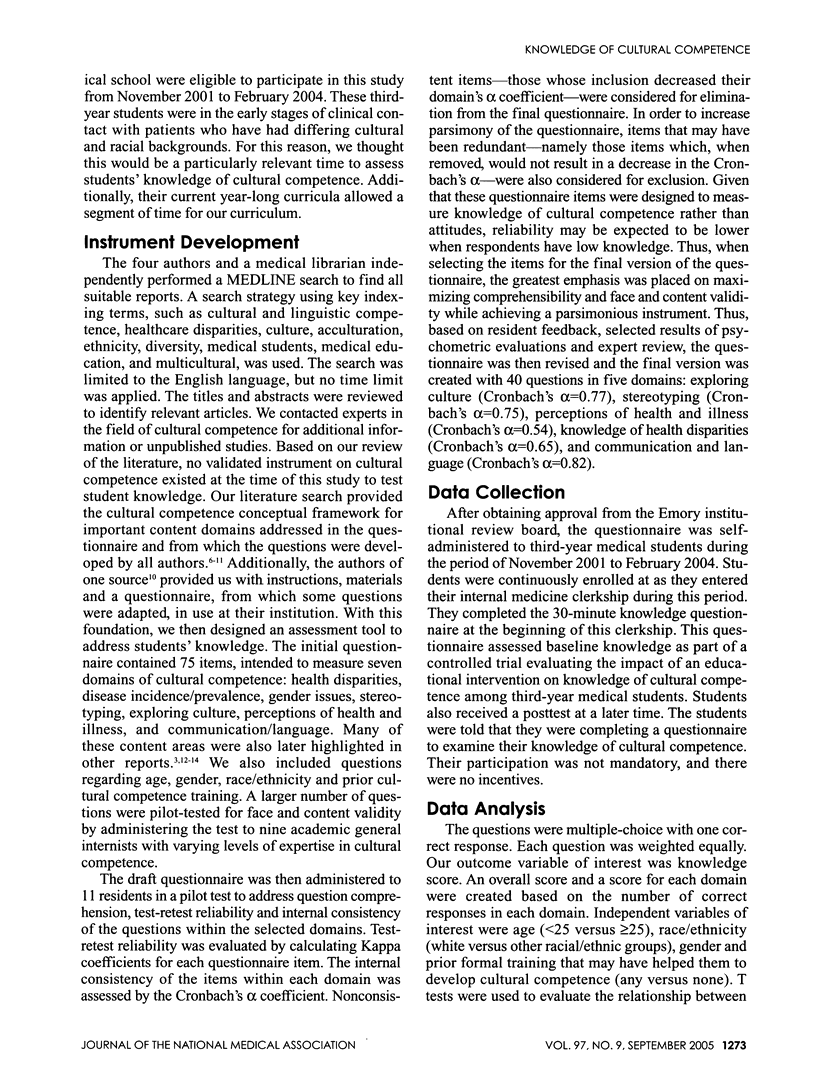
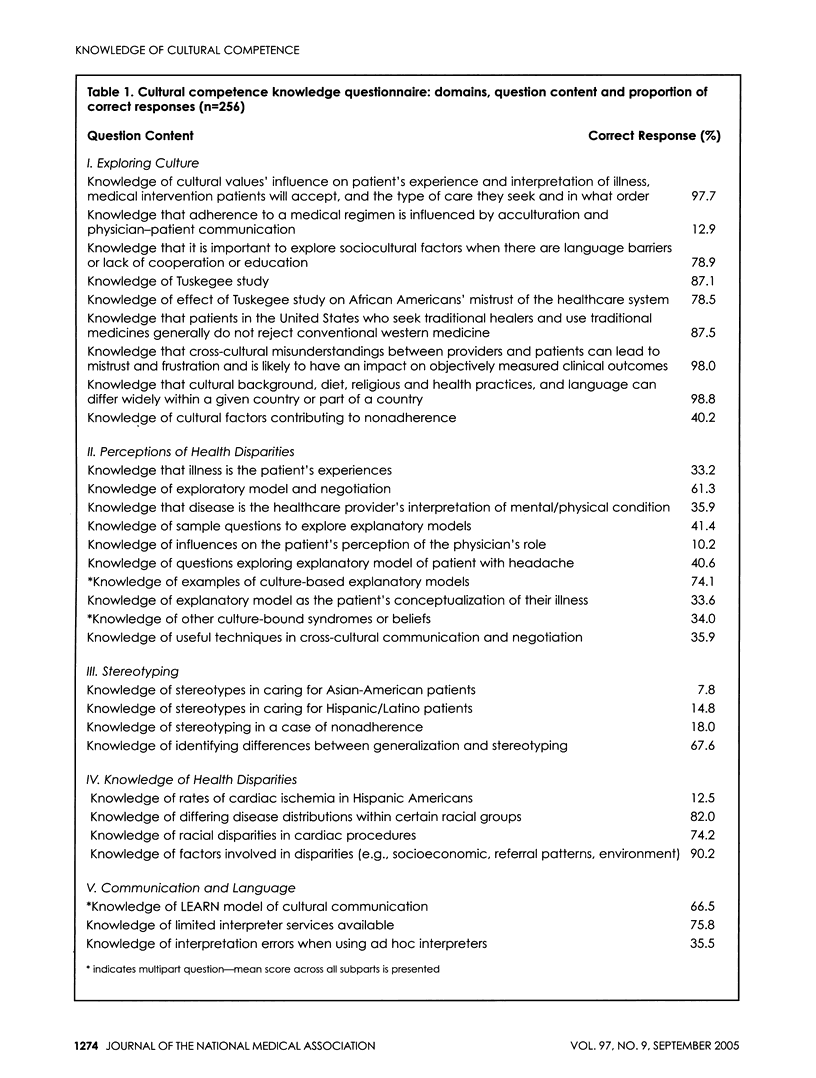
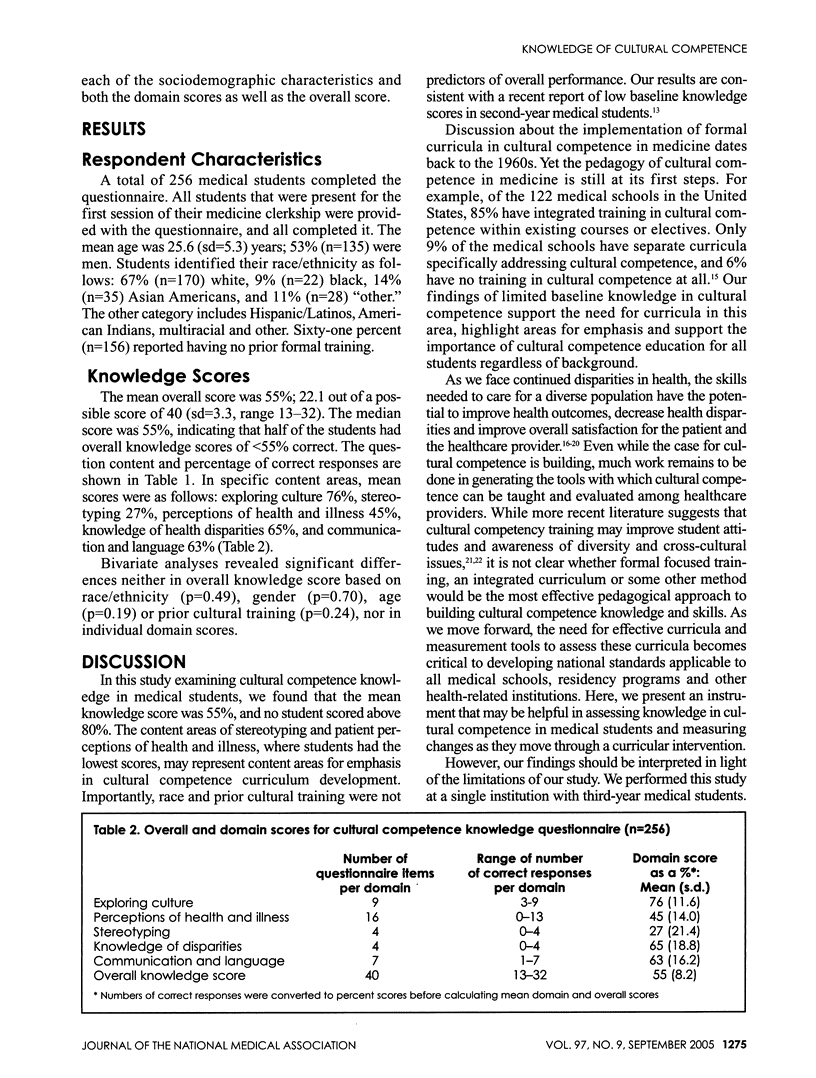
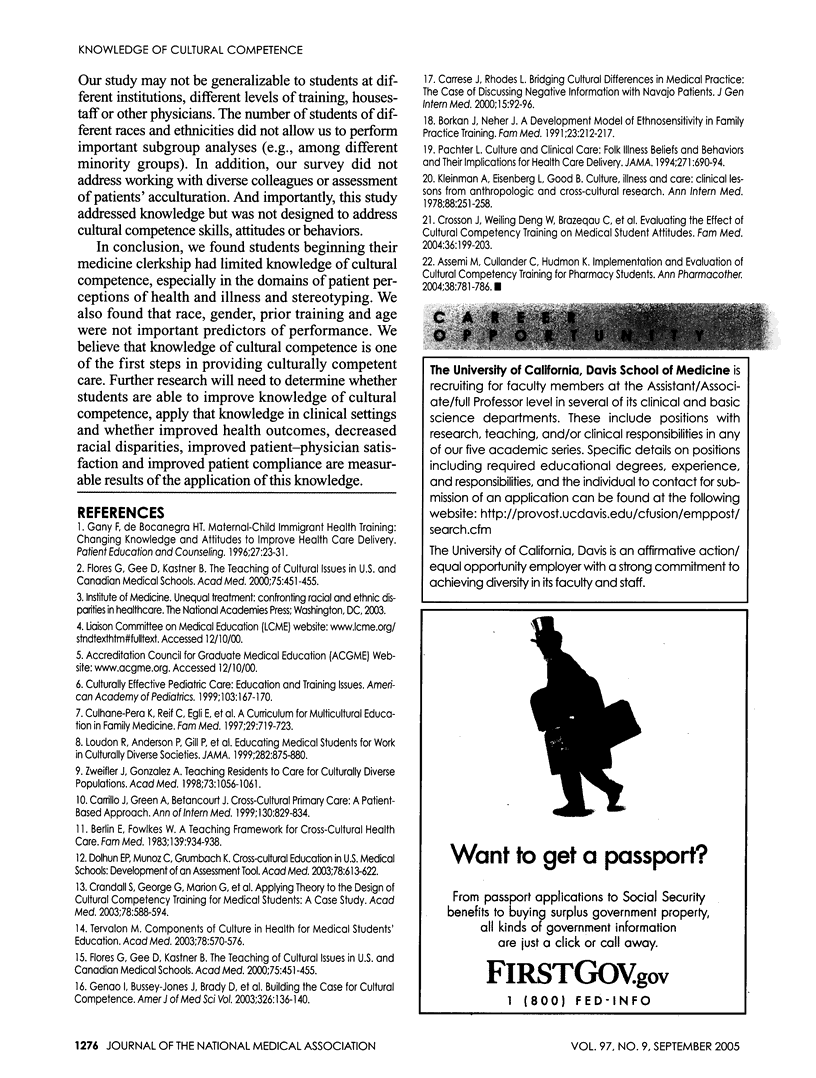
Selected References
These references are in PubMed. This may not be the complete list of references from this article.
- Assemi Mitra, Cullander Chris, Hudmon Karen Suchanek. Implementation and evaluation of cultural competency training for pharmacy students. Ann Pharmacother. 2004 Mar 16;38(5):781–786. doi: 10.1345/aph.1D402. [DOI] [PubMed] [Google Scholar]
- Berlin E. A., Fowkes W. C., Jr A teaching framework for cross-cultural health care. Application in family practice. West J Med. 1983 Dec;139(6):934–938. [PMC free article] [PubMed] [Google Scholar]
- Borkan J. M., Neher J. O. A developmental model of ethnosensitivity in family practice training. Fam Med. 1991 Mar-Apr;23(3):212–217. [PubMed] [Google Scholar]
- Carrese J. A., Rhodes L. A. Bridging cultural differences in medical practice. The case of discussing negative information with Navajo patients. J Gen Intern Med. 2000 Feb;15(2):92–96. doi: 10.1046/j.1525-1497.2000.03399.x. [DOI] [PMC free article] [PubMed] [Google Scholar]
- Carrillo J. E., Green A. R., Betancourt J. R. Cross-cultural primary care: a patient-based approach. Ann Intern Med. 1999 May 18;130(10):829–834. doi: 10.7326/0003-4819-130-10-199905180-00017. [DOI] [PubMed] [Google Scholar]
- Crandall Sonia J., George Geeta, Marion Gail S., Davis Steve. Applying theory to the design of cultural competency training for medical students: a case study. Acad Med. 2003 Jun;78(6):588–594. doi: 10.1097/00001888-200306000-00007. [DOI] [PubMed] [Google Scholar]
- Crosson Jesse C., Deng Weiling, Brazeau Chantal, Boyd Linda, Soto-Greene Maria. Evaluating the effect of cultural competency training on medical student attitudes. Fam Med. 2004 Mar;36(3):199–203. [PubMed] [Google Scholar]
- Culhane-Pera K. A., Reif C., Egli E., Baker N. J., Kassekert R. A curriculum for multicultural education in family medicine. Fam Med. 1997 Nov-Dec;29(10):719–723. [PubMed] [Google Scholar]
- Flores G., Gee D., Kastner B. The teaching of cultural issues in U.S. and Canadian medical schools. Acad Med. 2000 May;75(5):451–455. doi: 10.1097/00001888-200005000-00015. [DOI] [PubMed] [Google Scholar]
- Flores G., Gee D., Kastner B. The teaching of cultural issues in U.S. and Canadian medical schools. Acad Med. 2000 May;75(5):451–455. doi: 10.1097/00001888-200005000-00015. [DOI] [PubMed] [Google Scholar]
- Gany F., Thiel de Bocanegra H. Maternal-child immigrant health training: changing knowledge and attitudes to improve health care delivery. Patient Educ Couns. 1996 Jan;27(1):23–31. doi: 10.1016/0738-3991(95)00786-5. [DOI] [PubMed] [Google Scholar]
- Genao Inginia, Bussey-Jones Jada, Brady Donald, Branch William T., Jr, Corbie-Smith Giselle. Building the case for cultural competence. Am J Med Sci. 2003 Sep;326(3):136–140. doi: 10.1097/00000441-200309000-00006. [DOI] [PubMed] [Google Scholar]
- Kleinman A., Eisenberg L., Good B. Culture, illness, and care: clinical lessons from anthropologic and cross-cultural research. Ann Intern Med. 1978 Feb;88(2):251–258. doi: 10.7326/0003-4819-88-2-251. [DOI] [PubMed] [Google Scholar]
- Loudon R. F., Anderson P. M., Gill P. S., Greenfield S. M. Educating medical students for work in culturally diverse societies. JAMA. 1999 Sep 1;282(9):875–880. doi: 10.1001/jama.282.9.875. [DOI] [PubMed] [Google Scholar]
- Pachter L. M. Culture and clinical care. Folk illness beliefs and behaviors and their implications for health care delivery. JAMA. 1994 Mar 2;271(9):690–694. doi: 10.1001/jama.271.9.690. [DOI] [PubMed] [Google Scholar]
- Peña Dolhun Eduardo, Muñoz Claudia, Grumbach Kevin. Cross-cultural education in U.S. medical schools: development of an assessment tool. Acad Med. 2003 Jun;78(6):615–622. doi: 10.1097/00001888-200306000-00012. [DOI] [PubMed] [Google Scholar]
- Tervalon Melanie. Components of culture in health for medical students' education. Acad Med. 2003 Jun;78(6):570–576. doi: 10.1097/00001888-200306000-00005. [DOI] [PubMed] [Google Scholar]
- Zweifler J., Gonzalez A. M. Teaching residents to care for culturally diverse populations. Acad Med. 1998 Oct;73(10):1056–1061. doi: 10.1097/00001888-199810000-00012. [DOI] [PubMed] [Google Scholar]


